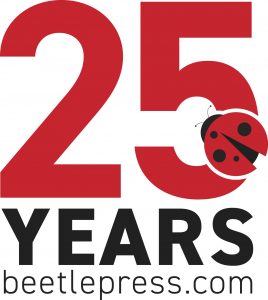Ten Tips for the Travel Writer-Wannabe

Note: This week’s blog was written by Shannon Grossman, who was a student intern with my PR business, Beetle Press, six years ago and has been working with me on a regular basis since. Shannon is pursuing an interest in travel writing, and we thought readers might enjoy learning from her!
By Shannon Grossman
I have been writing and creating stories since I was a child. When I was 16, I joined my friend’s family in Mexico, and the possibility of exploring the world’s wonders burst open. But it wasn’t until I wanted to share my experience after an awe-inspiring adventure to Peru with Operation Groundswell when I was 25 that I recognized I might be able to combine my two passions and monetize them.
As I build my skills as a travel writer, I recently attended a TravelCon travel conference in Memphis, Tennessee, to learn from experts how to develop toolsets in travel writing and build connections. Because we know many of you who follow this blog are writers, we thought you might be interested in what I learned! Here are 10 travel-writing tips to help get you started.
Heed the “show, don’t tell” mantra. This phrase is apt to appear in almost every piece of writing advice, but it is critical in travel writing. You could write that you went to a beach, and it was fun, but what does that convey? Instead, use your senses and show the details to amplify your writing. Was the ocean a midnight blue or crystalline? Is the sand wet and sticky or soft and warm? Help people feel like they were there, on the beach with you—or make them want to go there!
Tell a story. Spending a day at the beach is nice, but why write about it if there is no substance? If it’s your first time seeing the ocean, share how it exceeded (or maybe failed?) your expectations for a personal piece. You could also use your beach experience to frame a story on erosion and climate change.
Talk with the “locals.” You can gain insight and knowledge about a place when you converse with the people there. It can even change your perception. If you are writing about off-the-beaten-path beach destinations, you’d want to learn from people in the community what beaches they enjoy rather than write about where you assume they go.
Enhance your story with dialogue. Creating snippets of dialogue can give more insights into the people and the place. Writing down key phrases can help capture these moments. How does a regular beachgoer describe why they like this beach? How are parents describing what the beach was like 30 years ago to their children? You could write how the beach would be endless if it wasn’t for erosion, or instead, you could use a local’s anecdote about walking a mile out at low tide back in the day.
Take notes. Keeping notes helps to convey the details of a particular place, but don’t overdo it. If you are constantly scribbling, you may lose the authenticity of interactions or the feelings a place instills in you. Instead, create opportunities to spend time writing down those notes. Use your senses, write key feelings and words, and take photos.
Always fact-check yourself. Your information should be accurate, from writing a personal take on a beach day or a research article on climate change. Always double-check, even if you are positive about your memory. You may think you remember that the last storm was in 2016, but it was 2018.
Research where your story belongs. You want to research venues that would be a fit for your story. Check if they are writing about your topic, then see if they have published a similar piece already. Make sure you are pitching the correct editor at a particular publication as well. An editor’s first impression is not only gleaned from the pitch you email but your ability to research the publication and audience.
Read, read, and read. You want to read established writers in the field you are interested in writing. Follow other blogs and writers who write about your topic. Read their books and study their styles. What makes them successful? Take the learnings that resonate with you and add your own flair, so you stand out.
Network and connect with others. When you attend an event or conference, you want to network and establish bonds with others. If an editor needs a beach story in the future, they may reach out because of the impression you made on them. Perhaps, another writer learns of an opportunity that fits your niche and sends it your way.
Become the expert. Eventually, you want to become the go-to person for a topic. You want to write and write about beach destinations or climate change and become the writer that editors remember as knowing that topic. It establishes trust and authenticity and gives you more opportunities in the future.




